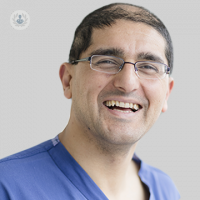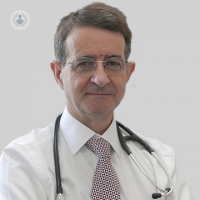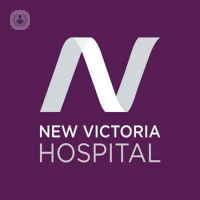What is shortness of breath?
Shortness of breath (also known as breathlessness or dyspnoea) is a very noticeable symptom where the patient finds it difficult to breathe properly, tiring out quickly, and not taking in enough oxygen with each breath. Breathing usually become quick and shallow, perhaps even hyperventilating, and may be accompanied by wheezing, coughing, or chest pain.

What symptoms are associated with shortness of breath?
Shortness of breath is a symptom rather than a diagnosis, and can be symptomatic of many underlying problems. As such, breathlessness may be accompanied by a number of symptoms, including:
- Fatigue
- Wheezing;
- Coughing;
- Hyperventilation;
- Chest pain;
- Pleurisy (pain with respiration);
- Dizziness;
- Fainting;
- Neck pain;
- Feelings of anxiety.

By analysing when the shortness of breath occurs (for example at rest or when doing exercise), and the other symptoms that accompany it, doctors can diagnose the root cause.
What causes shortness of breath?
There are many things that can cause dyspnoea, many of which can be serious, and some of which are even life-threatening, such as lung cancer and chronic obstructive pulmonary disease (COPD).
If you have sudden shortness of breath and are struggling to breathe, your chest feels tight or heavy, and you are experiencing pain which spreads to your neck, back, arms, and/or jaw, these are signs that you are having a heart attack or have a serious problem with your airways, and you should immediately call 999, as you will need hospital treatment.
Breathlessness can be symptomatic of:
Lung problems
- Asthma;
- Croup;
- Interstitial lung disease;
- Pulmonary oedema;
- Pulmonary fibrosis;
- Pleurisy;
- Sarcoidosis;
- Tuberculosis;
Heart problems
- Arrhythmia;
- Cardiomyopathy;
- Heart failure;
- Pericarditis;
Other problems
- Inhaling a foreign object;
- Low blood pressure;
- Anaemia;
- Carbon monoxide poisoning;
- Anxiety disorder.

When should I see a doctor about shortness of breath?
You should never feel you cannot consult a doctor – even if the problem does not seem serious, you are not wasting anyone’s time getting it checked out. You should definitely see a doctor for shortness of breath in the following circumstances:
- It has been going on for over a month;
- You have swelling around your feet and ankles;
- You have been coughing for three weeks or more;
- You experience fevers and/or chills;
- Your breathlessness is worse when you lie down or do exercise.
How do I know if my shortness of breath is serious?
If shortness of breath comes on suddenly and affects the ability to function, you should get in touch with your emergency services.
It could be related to a heart attack or pulmonary embolism if shortness of breath is accompanied by:
- Chest pain;
- Fainting;
- Nausea;
- A bluish tinge to lips or nails, or;
- Change in mental alertness.
Again, you should seek emergency medical care if you experience any of these symptoms.
How is shortness of breath treated?
The treatment for breathlessness depends entirely on the cause. The possible causes of dyspnoea are numerous and diverse, and therefore, so are the possible treatments. General advice, especially for chronic shortness of breath, would be to stop smoking, lose weight, and avoid exposure to allergens and pollutants that could make it worse.
What tests are done for shortness of breath?
Shortness of breath could be a symptom of another condition so while doctors look for shortness of breath symptoms, tests could be ordered to identify an underlying cause. These include:
- Blood tests;
- Imaging tests such as chest X-ray or CT scan;
- Lung function tests such as Spirometry;
- Echocardiogram.
What specialist treats shortness of breath?
Pulmonologists treat breathing-related conditions and specialise in the respiratory system. However, once the underlying cause is identified you could be referred to other specialists such as a cardiologist or nutritionist.
03-26-2018 10-26-2023Shortness of breath
What is shortness of breath?
Shortness of breath (also known as breathlessness or dyspnoea) is a very noticeable symptom where the patient finds it difficult to breathe properly, tiring out quickly, and not taking in enough oxygen with each breath. Breathing usually become quick and shallow, perhaps even hyperventilating, and may be accompanied by wheezing, coughing, or chest pain.

What symptoms are associated with shortness of breath?
Shortness of breath is a symptom rather than a diagnosis, and can be symptomatic of many underlying problems. As such, breathlessness may be accompanied by a number of symptoms, including:
- Fatigue
- Wheezing;
- Coughing;
- Hyperventilation;
- Chest pain;
- Pleurisy (pain with respiration);
- Dizziness;
- Fainting;
- Neck pain;
- Feelings of anxiety.

By analysing when the shortness of breath occurs (for example at rest or when doing exercise), and the other symptoms that accompany it, doctors can diagnose the root cause.
What causes shortness of breath?
There are many things that can cause dyspnoea, many of which can be serious, and some of which are even life-threatening, such as lung cancer and chronic obstructive pulmonary disease (COPD).
If you have sudden shortness of breath and are struggling to breathe, your chest feels tight or heavy, and you are experiencing pain which spreads to your neck, back, arms, and/or jaw, these are signs that you are having a heart attack or have a serious problem with your airways, and you should immediately call 999, as you will need hospital treatment.
Breathlessness can be symptomatic of:
Lung problems
- Asthma;
- Croup;
- Interstitial lung disease;
- Pulmonary oedema;
- Pulmonary fibrosis;
- Pleurisy;
- Sarcoidosis;
- Tuberculosis;
Heart problems
- Arrhythmia;
- Cardiomyopathy;
- Heart failure;
- Pericarditis;
Other problems
- Inhaling a foreign object;
- Low blood pressure;
- Anaemia;
- Carbon monoxide poisoning;
- Anxiety disorder.

When should I see a doctor about shortness of breath?
You should never feel you cannot consult a doctor – even if the problem does not seem serious, you are not wasting anyone’s time getting it checked out. You should definitely see a doctor for shortness of breath in the following circumstances:
- It has been going on for over a month;
- You have swelling around your feet and ankles;
- You have been coughing for three weeks or more;
- You experience fevers and/or chills;
- Your breathlessness is worse when you lie down or do exercise.
How do I know if my shortness of breath is serious?
If shortness of breath comes on suddenly and affects the ability to function, you should get in touch with your emergency services.
It could be related to a heart attack or pulmonary embolism if shortness of breath is accompanied by:
- Chest pain;
- Fainting;
- Nausea;
- A bluish tinge to lips or nails, or;
- Change in mental alertness.
Again, you should seek emergency medical care if you experience any of these symptoms.
How is shortness of breath treated?
The treatment for breathlessness depends entirely on the cause. The possible causes of dyspnoea are numerous and diverse, and therefore, so are the possible treatments. General advice, especially for chronic shortness of breath, would be to stop smoking, lose weight, and avoid exposure to allergens and pollutants that could make it worse.
What tests are done for shortness of breath?
Shortness of breath could be a symptom of another condition so while doctors look for shortness of breath symptoms, tests could be ordered to identify an underlying cause. These include:
- Blood tests;
- Imaging tests such as chest X-ray or CT scan;
- Lung function tests such as Spirometry;
- Echocardiogram.
What specialist treats shortness of breath?
Pulmonologists treat breathing-related conditions and specialise in the respiratory system. However, once the underlying cause is identified you could be referred to other specialists such as a cardiologist or nutritionist.
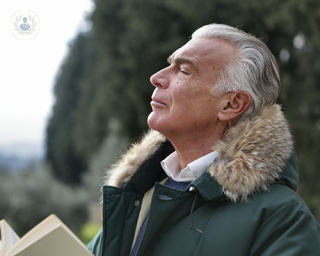

Congestive heart failure: how to manage ‘air hunger’ (shortness of breath)
By Dr Arjun Ghosh
2024-12-15
Are you feeling “air hunger” (shortness of breath)? Dr Arjun K Ghosh, a leading London cardiologist, shares his professional expertise with you. Learn from a specialist about what air hunger is, why it happens, how it’s managed and the overall outlook. See more
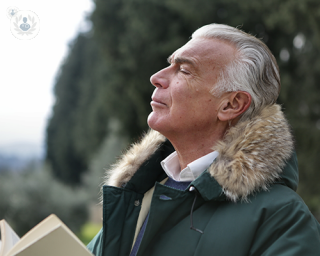

How can I tell if my shortness of breath is serious?
By Dr Sergio Nabais
2024-12-15
Experiencing shortness of breath can be quite frightening, and when you notice it, you may start to fear the worst. Here to discuss the various potential causes of the condition is highly skilled consultant interventional cardiologist, Dr Sergio Nabais. See more
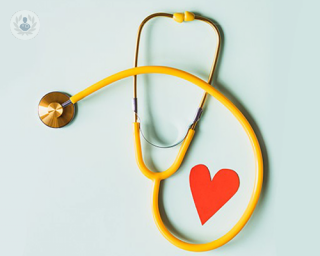

Your guide to dilated cardiomyopathy: causes, symptoms and treatments
By Dr Resham Baruah
2024-12-15
Dilated cardiomyopathy (DCM) is a condition in which the heart chambers become enlarged, stopping your heart from pumping blood efficiently around the body. Dr Resham Baruah walks us through the causes of DCM, the symptoms and the treatment available. See more
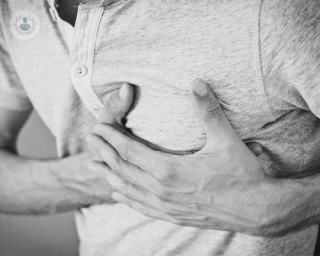

Shortness of breath and the heart: the connection explained
By Dr Khalid Barakat
2024-12-15
In our latest article, esteemed consultant cardiologist, Dr Khalid Barakat, explains in detail the relationship between shortness of breath and the heart, reveals what symptoms are typically indicative of heart problems, and tells us when patients should see a doctor in relation to shortness of breath. See more
Experts in Shortness of breath
-
Dr Sundeep Kaul
Pulmonology & respiratory medicineExpert in:
- Asthma
- Bronchoscopy
- Chronic cough
- Lung cancer
- Shortness of breath
- Long Covid
-
Dr John Gerry Coghlan
CardiologyExpert in:
- Pulmonary hypertension
- Interventional cardiology
- Shortness of breath
- Hypertension (high blood pressure)
- Connective tissue disease
- Angina
-
Dr Farid Bazari
Pulmonology & respiratory medicineExpert in:
- Cough
- Asthma
- Lung cancer
- Shortness of breath
- Sleep disorders
- Respiratory diseases
-
Professor Michael Mahmoudi
CardiologyExpert in:
- Chest pain
- Shortness of breath
- Palpitations
- Hypertension (high blood pressure)
- Coronary angioplasty
- Ambulatory ECG monitoring
-
Dr Timothy Chapman
Pulmonology & respiratory medicineExpert in:
- Cough
- Asthma
- Shortness of breath
- Lung cancer
- Sleep disorders
- Respiratory diseases
- See all

New Victoria Hospital
New Victoria Hospital
184 Coombe Lane West, Kingston upon Thames, KT2 7EG
No existe teléfono en el centro.
By using the telephone number provided by TOP DOCTORS, you automatically agree to let us use your phone number for statistical and commercial purposes. For further information, read our Privacy Policy
Top Doctors

The Park Hospital - part of Circle Health Group
The Park Hospital - part of Circle Health Group
Sherwood Lodge Drive, Burntstump Country Park, Arnold, Nottinghamshire NG5 8RX
No existe teléfono en el centro.
By using the telephone number provided by TOP DOCTORS, you automatically agree to let us use your phone number for statistical and commercial purposes. For further information, read our Privacy Policy
Top Doctors

OneWelbeck Heart Health
OneWelbeck Heart Health
1 Welbeck St, London, W1G 0AR
No existe teléfono en el centro.
By using the telephone number provided by TOP DOCTORS, you automatically agree to let us use your phone number for statistical and commercial purposes. For further information, read our Privacy Policy
Top Doctors
-
New Victoria Hospital
184 Coombe Lane West, Kingston upon Thames, KT2 7EG, South LondonExpert in:
- Cardiology
- General Surgery
- Orthopaedic surgery
- Breast augmentation
- Pain management
- Spine
-
The Park Hospital - part of Circle Health Group
Sherwood Lodge Drive, Burntstump Country Park, Arnold, Nottinghamshire NG5 8RX, ArnoldExpert in:
- General Surgery
- Maxillofacial Surgery
- Oral surgery
- Plastic surgery, reconstructive and aesthetics
- Obstetrics and Gynaecology
- Podiatry
-
OneWelbeck Heart Health
1 Welbeck St, London, W1G 0AR, W1G Marylebone LondonExpert in:
- Clinical analysis
- Arrhythmia
- Palpitations
- See all
- Most viewed diseases, medical tests, and treatments
- Electrophysiology study
- Child nutrition
- Autoimmune diseases
- Nutrition
- Genetic testing
- Abdominal pain
- Heart murmur in children
- Anxiety
- Long Covid
- Fainting in children

